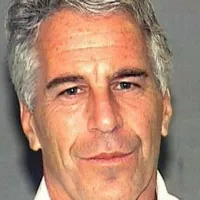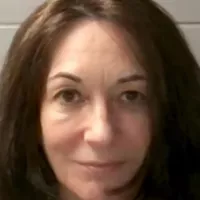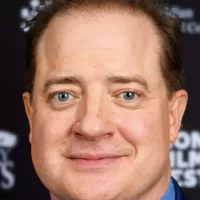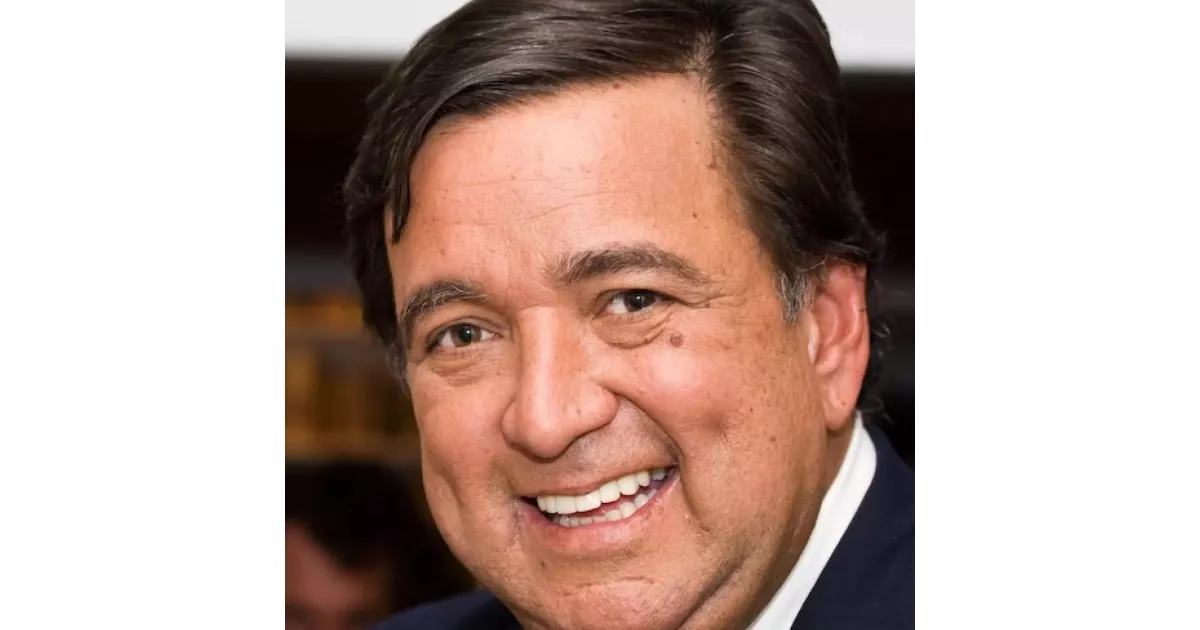Bill Richardson was an American politician and diplomat who served as the 30th Governor of New Mexico. He also held positions such as U.S. Ambassador to the United Nations, Energy Secretary under President Clinton, U.S. Congressman, and Chair of the Democratic National Convention in 2004. His career spanned decades and involved significant roles in both domestic and international affairs.
1914: Birth of María Luisa López-Collada Márquez
Bill Richardson's mother, María Luisa López-Collada Márquez, was born in 1914.
November 15, 1947: Birth of Bill Richardson
William Blaine Richardson III was born in Pasadena, California on November 15, 1947.
1966: Enrolled at Tufts University
Bill Richardson started studying at Tufts University in 1966.
1967: Playing Collegiate Summer Baseball
Bill Richardson played collegiate summer baseball in the Cape Cod Baseball League, pitching for the Cotuit Kettleers in 1967.
1967: Misinterpretation of Baseball Draft
In 1967, a program listing led Bill Richardson to believe he had been drafted by a major league baseball team.
1968: Return to Cape Cod Baseball League
Bill Richardson returned to the Cape Cod Baseball League in 1968, playing with the Harwich Mariners.
1970: Graduation from Tufts University
Bill Richardson earned a Bachelor's degree in French and political science from Tufts University in 1970.
1971: Work for Congressman F. Bradford Morse
Bill Richardson began working for Republican Congressman F. Bradford Morse from Massachusetts in 1971.
1971: Master's Degree from Fletcher School of Law and Diplomacy
Bill Richardson received a master's degree in international affairs from the Tufts University Fletcher School of Law and Diplomacy in 1971.
1972: Marriage to Barbara Flavin
Bill Richardson married Barbara Flavin in 1972, after meeting her in high school.
1972: Death of William Blaine Richardson Jr.
Bill Richardson's father, William Blaine Richardson Jr. passed away in 1972.
1973: End of work for Congressman F. Bradford Morse
Bill Richardson stopped working for Republican Congressman F. Bradford Morse from Massachusetts in 1973.
1974: Work for Kissinger State Department
Bill Richardson started working on congressional relations for the Kissinger State Department during the Nixon administration in 1974.
1976: Staff Member for the Senate Foreign Relations Committee
Bill Richardson started working as a staff member for the Senate Foreign Relations Committee in 1976.
1978: End of work for the Senate Foreign Relations Committee
Bill Richardson stopped working as a staff member for the Senate Foreign Relations Committee in 1978.
1980: First Run for House of Representatives
Bill Richardson ran for the House of Representatives in New Mexico's 3rd congressional district in 1980 but lost to Manuel Lujan.
1984: Chair of the Congressional Hispanic Caucus
Bill Richardson served as Chair of the Congressional Hispanic Caucus in the 98th Congress starting in 1984.
1985: End of term as Chair of the Congressional Hispanic Caucus
Bill Richardson's term as Chair of the Congressional Hispanic Caucus in the 98th Congress ended in 1985.
1993: Supporting NAFTA's Passage
As a ranking House Democrat, Bill Richardson played a key role in the passage of NAFTA in 1993, working closely with Bill Clinton.
1993: Chair of the House Natural Resources Subcommittee on Native American Affairs
Bill Richardson started serving as the Chair of the House Natural Resources Subcommittee on Native American Affairs in the 103rd Congress in 1993.
1994: End of term as Chair of the House Natural Resources Subcommittee on Native American Affairs
Bill Richardson's term as Chair of the House Natural Resources Subcommittee on Native American Affairs in the 103rd Congress ended in 1994.
1995: Negotiations with Saddam Hussein
Bill Richardson, alongside Peter Bourne, traveled to Baghdad in 1995 and negotiated with Saddam Hussein to secure the release of two captured American aerospace workers.
1996: Securing Release of Americans Abroad
Bill Richardson played a crucial role in securing the release of American Evan Hunziker from North Korean custody and a pardon for Eliadah McCord, imprisoned in Bangladesh, in 1996.
1996: Successful Negotiation for the Release of Evan Hunziker
In 1996, Richardson played a key role in negotiating the release of Evan Hunziker, the first American civilian arrested by North Korea for espionage since the Korean War. He accompanied U.S. State Department officials during the successful mission.
February 1997: U.S. Ambassador to the United Nations
Bill Richardson became the U.S. Ambassador to the United Nations in February 1997.
1997: Richardson Interviews Monica Lewinsky for Job
In 1997, during his time as US Ambassador to the United Nations, Bill Richardson was asked by the White House to interview Monica Lewinsky for a job. Richardson offered her the position, which she declined.
July 31, 1998: Senate Confirmation as Secretary of Energy
On July 31, 1998, Bill Richardson was confirmed by the Senate to serve as President Clinton's Secretary of Energy.
August 1998: End of term as U.S. Ambassador to the United Nations
Bill Richardson's term as the U.S. Ambassador to the United Nations ended in August 1998.
1998: Creation of Director for Native American Affairs Position
In 1998, Bill Richardson established the Director for Native American Affairs position within the Department of Energy.
January 2000: Significant Land Return to Native American Tribe and Tribal Policy Enhancements
In January 2000, Bill Richardson oversaw the largest return of federal land to a Native American tribe in over a century, giving 84,000 acres back to the Northern Ute Tribe of Utah. He also implemented improvements to the Department of Energy's consultation policies with Native American tribes and initiated the Tribal Energy Program.
2000: United States Institute of Peace Senior Fellowship Award
Bill Richardson received the United States Institute of Peace Senior Fellowship in 2000, dedicating the following year to researching and writing about negotiations with North Korea and U.S. energy relations.
2000: Wen Ho Lee Espionage Controversy and Impact on Vice Presidential Aspirations
In 2000, Bill Richardson's tenure as Secretary of Energy was overshadowed by the Wen Ho Lee espionage controversy, where a scientist was wrongly accused of leaking nuclear secrets. Richardson faced criticism for his handling of the situation, ultimately ending his prospects of being Al Gore's running mate in the 2000 presidential election.
January 2001: Transition to Academic and Research Roles
Following the end of the Clinton administration in January 2001, Richardson took on various academic and research positions. He served as an adjunct professor at Harvard Kennedy School, lectured at the United World College of the American West, and taught at the University of New Mexico and New Mexico State University.
February 2001: Appointment to Peregrine Systems' Board of Directors
Bill Richardson joined the board of directors of Peregrine Systems in February 2001.
June 2002: End of Tenure on Peregrine System's Board
Bill Richardson's time on the board of directors of Peregrine Systems concluded in June 2002.
November 2002: Election as Governor of New Mexico
Bill Richardson was elected governor of New Mexico in November 2002, defeating Republican candidate John Sanchez.
January 2003: Inauguration as Governor of New Mexico
Bill Richardson assumed office as governor of New Mexico in January 2003, becoming the only Hispanic governor in the United States at that time.
2003: Support for Concealed Handgun Permit System
Bill Richardson supported and signed legislation in 2003 that established a permit system for carrying concealed handguns in New Mexico. He obtained a permit himself but admitted to rarely carrying a gun.
2003: Diplomatic Efforts with North Korea
In 2003, Richardson engaged in diplomatic talks with a North Korean delegation, addressing concerns about the country's nuclear weapons program.
2003: Establishment of Richardson's Investment Partnership (GRIP)
Richardson, in collaboration with the legislature, formed Richardson's Investment Partnership (GRIP) in 2003 to fund major public infrastructure projects in New Mexico.
2004: Chair of the Democratic National Convention
Bill Richardson served as the chair of the 2004 Democratic National Convention.
2004: Chairmanship of the Democratic Governors Association
Bill Richardson was appointed Chair of the Democratic Governors Association in 2004, aiming to elevate the role of Democratic governors in shaping the party's direction.
2004: Alleged Affair and Cover-Up Attempt
In 2004, Bill Richardson was alleged to have had an affair, which he and his campaign team attempted to cover up in 2008 by paying the woman involved $250,000.
December 2005: Collaboration on Spaceport America for Space Tourism
In December 2005, Richardson announced New Mexico's partnership with Richard Branson to develop Spaceport America, aimed at promoting space tourism, near Las Cruces.
2005: Clarification on Baseball Draft
An investigation by the Albuquerque Journal in 2005 revealed Bill Richardson was never officially drafted by a major league baseball team, prompting him to acknowledge and correct the error.
2005: Diplomatic Trip to North Korea
At the White House's request, Richardson traveled to North Korea in 2005 for further discussions with North Korean officials.
2005: Pioneering Life Insurance Coverage for National Guard Members
In 2005, New Mexico, under Richardson's leadership, became the first state to offer $400,000 in life insurance coverage to National Guard members on active duty, setting a precedent that 35 other states later followed.
2005: Supreme Court Ruling on Eminent Domain
The Supreme Court's 2005 decision in Kelo v. City of New London influenced eminent domain practices, a topic that Bill Richardson would address during his time as governor.
March 2006: Use of Anti-Gay Slur and LGBT Rights Record
In March 2006, Richardson faced backlash for using an anti-gay slur on Don Imus's radio show, contrasting with his support for some LGBT rights measures, such as adding sexual orientation and gender identity to New Mexico's civil rights categories. He remained opposed to same-sex marriage.
March 2006: Veto of Eminent Domain Legislation and Commitment to Reform
Richardson vetoed legislation in March 2006 that would have prohibited the use of eminent domain for transferring property to private developers, as permitted by the Kelo v. City of New London Supreme Court ruling in 2005. He pledged to collaborate with the legislature on revised legislation in 2007 to address concerns.
August 26, 2006: Journalist Paul Salopek Imprisoned in Sudan
On August 26, 2006, journalist Paul Salopek was imprisoned in Sudan while on a National Geographic assignment, charged with espionage.
September 7, 2006: Richardson Negotiates Release of Journalist Paul Salopek
On September 7, 2006, Bill Richardson successfully negotiated the release of journalist Paul Salopek, who was imprisoned in Sudan on charges of espionage.
November 7, 2006: Richardson Wins Second Term as Governor of New Mexico
On November 7, 2006, Bill Richardson won his second term as Governor of New Mexico, defeating John Dendahl with the highest percentage of votes in the state's history for a gubernatorial election.
December 7, 2006: Appointment as Special Envoy for Hemispheric Affairs
On December 7, 2006, Bill Richardson was appointed Special Envoy for Hemispheric Affairs by José Miguel Insulza, Secretary General of the Organization of American States. His mandate was to facilitate dialogue on critical regional topics like immigration and free trade.
December 2006: Richardson Announces Support for Cockfighting Ban
In December 2006, then-Governor of New Mexico Bill Richardson announced his support for a ban on cockfighting in the state.
2006: Recognition for Albuquerque's Business Environment and Fiscal Responsibility
In 2006, Forbes recognized Albuquerque as a top city for business and careers, attributing this achievement to reforms implemented under Richardson's leadership. The Cato Institute consistently ranked him as one of the most fiscally responsible Democratic governors.
January 2007: Richardson Brokers Ceasefire in Darfur
In January 2007, Bill Richardson, at the request of the Save Darfur Coalition, brokered a 60-day cease-fire between Sudanese President Omar al-Bashir and leaders of several rebel factions in the Darfur region. However, the cease-fire was not effective due to alleged breaches by all sides.
March 12, 2007: New Mexico Bans Cockfighting
On March 12, 2007, a bill supported by Bill Richardson banning cockfighting in New Mexico was signed into law.
2007: Planned Collaboration on Eminent Domain Legislation
Bill Richardson planned to work with the legislature in 2007 to draft new legislation concerning eminent domain, a contentious issue following a 2005 Supreme Court ruling.
2007: Divestment from Energy Company Stock Holdings
During his 2007 presidential campaign, Richardson sold his stock holdings in energy companies Valero and Diamond Offshore, addressing concerns about potential conflicts of interest stemming from his past as energy secretary.
2007: New Mexico Legalizes Medical Cannabis
In 2007, during his time as Governor of New Mexico, Bill Richardson signed a bill legalizing cannabis for medical reasons, making New Mexico the 12th state in the US to do so.
January 10, 2008: Richardson Drops Out of 2008 Presidential Race
On January 10, 2008, Bill Richardson withdrew from the 2008 Democratic presidential primary after receiving little support in the first primaries and caucuses.
March 21, 2008: Richardson Endorses Obama for President
On March 21, 2008, Bill Richardson endorsed Barack Obama over Hillary Clinton for the Democratic presidential nomination.
August 23, 2008: Obama Chooses Biden as Running Mate
On August 23, 2008, Barack Obama chose Joe Biden as his vice-presidential running mate. Bill Richardson had been a rumored candidate for the position and was vetted by the Obama campaign.
December 3, 2008: Obama Nominates Richardson for Commerce Secretary
On December 3, 2008, then-President-elect Barack Obama nominated Bill Richardson for the position of Commerce Secretary.
December 2008: Nomination and Withdrawal for Secretary of Commerce
In December 2008, Bill Richardson was nominated for the position of Secretary of Commerce in the Obama administration, but withdrew due to an investigation into his business dealings.
2008: Richardson Faces Pay-to-Play Allegations
During 2008 and 2009, Bill Richardson faced a federal grand jury investigation into allegations that he engaged in pay-to-play practices, awarding a state contract to a company that donated to his political action committee.
2008: Defense of Driver's Licenses for Undocumented Immigrants
During his 2008 presidential campaign, Richardson defended a controversial New Mexico law allowing undocumented immigrants to obtain driver's licenses. He argued that the program improved public safety, citing a reduction in traffic fatalities and uninsured drivers.
2008: Richardson Considered for Secretary of State
Following Barack Obama's victory in the 2008 presidential election, Bill Richardson's name was frequently mentioned as a possible candidate for a position in Obama's cabinet, particularly Secretary of State. Ultimately, Hillary Clinton was chosen for the position.
2008: Alleged Campaign Finance Violations During Presidential Campaign
In 2008, during his run for president, Bill Richardson was accused of being involved in campaign finance violations.
January 4, 2009: Richardson Withdraws as Commerce Secretary Nominee
On January 4, 2009, Bill Richardson withdrew from consideration for Commerce Secretary due to a federal grand jury investigation into allegations of pay-to-play.
March 18, 2009: New Mexico Repeals the Death Penalty
On March 18, 2009, Bill Richardson signed a bill repealing the death penalty in New Mexico, making it the second U.S. state after New Jersey to do so through legislative means since the 1960s.
August 2009: Federal Prosecutors Drop Investigation into Richardson
In August 2009, federal prosecutors decided to drop the investigation into allegations of pay-to-play against Bill Richardson.
April 2010: Richardson Named One of the "Worst Governors" by Ethics Watchdog Group
In April 2010, ethics watchdog group Citizens for Responsibility and Ethics in Washington named Bill Richardson as one of the eleven worst governors in the US, citing ethics issues throughout his time in office.
December 2010: Richardson Visits North Korea for Diplomatic Talks
In December 2010, while still governor, Bill Richardson traveled to North Korea at the invitation of Kim Kye-gwan, North Korea's chief nuclear negotiator, in an attempt to reduce tensions on the Korean peninsula.
2011: Board Membership with the National Institute for Civil Discourse
Bill Richardson served on the board of directors for the National Institute for Civil Discourse (NICD), established following the 2011 Tucson shooting of Congresswoman Gabby Giffords.
2011: Death of María Luisa López-Collada Márquez
Bill Richardson's mother, María Luisa López-Collada Márquez passed away in 2011.
2011: End of Governorship
Bill Richardson's second term as the Governor of New Mexico concluded in 2011.
2011: Appointment as Senior Fellow at the Baker Institute
In 2011, Bill Richardson was appointed as a senior fellow at Rice University's Baker Institute.
2011: Richardson Investigated for Campaign Finance Violations
In 2011, Bill Richardson was investigated for his alleged role in campaign finance violations. A former campaign member claimed that during Richardson's 2008 presidential campaign, he and other campaign members paid a woman $250,000 to stop her from going public with an alleged affair that occurred in 2004.
2011: Richardson's Second Term Ends
In 2011, Bill Richardson's second term as governor of New Mexico ended, and he was term-limited from running for a third term.
2011: Appointment as Special Envoy and Establishment of the Richardson Center
In 2011, Richardson took on the role of special envoy for the Organization of American States and established the Richardson Center, a foundation dedicated to negotiating the release of political prisoners worldwide.
2011: Joining Various Boards and Organizations
Richardson expanded his involvement in various organizations in 2011, becoming chairman of Global Political Strategies at APCO Worldwide, and joining the boards of the World Resources Institute, the National Council for Science and the Environment, and Abengoa's international advisory board.
December 2012: Chairman of Car Charging Group
Richardson took on the role of chairman of the Board of Directors for Car Charging Group in December 2012. Car Charging Group is recognized as the largest independent owner and operator of public electric vehicle charging stations in the United States.
2012: Joining Advisory Boards of Grow Energy and Refugees International
In 2012, Richardson joined the advisory boards of Grow Energy and Refugees International, further contributing to his portfolio in the energy and humanitarian sectors. He was also a member of the Inter-American Dialogue, a think tank based in Washington, D.C., focusing on the Western Hemisphere.
2012: Testimony in United States of America v. Carollo, Goldberg and Grimm Trial
In 2012, during the United States of America v. Carollo, Goldberg and Grimm trial, former CDR employee Doug Goldberg testified about giving Bill Richardson's campaign $100,000 in exchange for CDR being hired for a $400 million swap deal with the New Mexico state government. Goldberg claimed he delivered a $25,000 check to Richardson and that CDR was later hired, though another firm allegedly performed the actual work.
January 2013: Humanitarian Mission to North Korea and Unsuccessful Negotiation for Kenneth Bae's Release
Richardson led a delegation of business leaders, including Google chairman Eric Schmidt, to North Korea in January 2013, following the country's orbital rocket launch. The trip, characterized as a "private, humanitarian" mission, involved an attempt to secure the release of Kenneth Bae, a U.S. citizen detained for alleged hostile acts. Richardson's efforts to speak with officials and visit Bae were unsuccessful, but he delivered a letter from Bae's son.
2013: Joining the Board of Advisors for the Fuel Freedom Foundation
In 2013, Richardson joined the Board of Advisors for the Fuel Freedom Foundation, demonstrating his continued engagement in energy-related initiatives.
November 2014: Release of Kenneth Bae
Kenneth Bae, a U.S. citizen detained in North Korea, was released in November 2014 after being accused of committing "hostile" acts against the state.
2015: Court Documents Allege Richardson's Possible Involvement with Jeffrey Epstein
Court documents from 2015, unsealed in 2019, suggested Richardson's potential connection to the Jeffrey Epstein child trafficking ring. Richardson vehemently denied these allegations.
March 2016: Unsuccessful Negotiation for Otto Warmbier's Release
At the request of Ohio Governor John Kasich, Richardson engaged in negotiations with North Korea in March 2016 to secure the release of Otto Warmbier, a Cincinnati college student detained during a visit to the country. The negotiations, however, proved unsuccessful.
June 2017: Release and Death of Otto Warmbier
In June 2017, Otto Warmbier was released from detention in North Korea in a vegetative state. He tragically passed away in Cincinnati later that month.
August 9, 2019: Unsealing of Court Documents in Virginia Roberts Giuffre and Ghislaine Maxwell Civil Suit
On August 9, 2019, court documents were unsealed in the civil suit between Virginia Roberts Giuffre and Ghislaine Maxwell, revealing Richardson's name among those accused. The documents alleged Richardson's potential involvement with Jeffrey Epstein's child trafficking ring. Richardson denied the accusations, stating that he did not know Giuffre and had never witnessed Epstein with young or underage girls.
August 2019: Richardson Denies Involvement with Jeffrey Epstein and Offers Assistance in Investigation
Following the release of court documents alleging his involvement with Jeffrey Epstein, Richardson issued a statement denying the claims and offering his assistance in the investigation to the U.S. Attorney for the Southern District of New York in August 2019.
November 2021: Humanitarian Mission to Myanmar
In November 2021, Bill Richardson conducted a private humanitarian mission to Myanmar, which resulted in the release of American journalist Danny Fenster.
November 2021: Successful Negotiation for Danny Fenster's Release from Myanmar
Richardson undertook a mission to Myanmar in November 2021, where he met with military junta leader Min Aung Hlaing. Through these negotiations, he secured the release of U.S. journalist Danny Fenster, who had been serving an 11-year prison sentence.
September 1, 2023: Death of Bill Richardson
Bill Richardson passed away on September 1, 2023.
Mentioned in this timeline

Bill Clinton the nd U S President - served as...

Barack Obama the th U S President - was the...

Hillary Diane Rodham Clinton is a prominent American politician lawyer...

Jeffrey Epstein was an American financier and convicted sex offender...

Ghislaine Maxwell is a British former socialite convicted in of...

Google LLC is a multinational technology company specializing in online...
Trending

32 minutes ago Oklahoma Sooners Honor Buddy Hield and 2016 Final Four Team.
33 minutes ago Moldova's Veterinary Education to modernize through the EDUVET European Project for enhancement.

33 minutes ago Brendan Fraser as Eisenhower in 'Pressure': D-Day drama unfolds with weather worries.

33 minutes ago Cade Cunningham's 42 Points Leads Pistons Over Knicks; Brunson's Performance Notable.

34 minutes ago Usha Vance's diaper request sparks controversy during pregnancy: A novel approach?

2 hours ago Learner Tien at Delray Beach Open: Fritz ousted, Paul advances, Korda previewed.
Popular

Jesse Jackson is an American civil rights activist politician and...

Barack Obama the th U S President - was the...

Bernie Sanders is a prominent American politician currently serving as...

Ken Paxton is an American politician and lawyer serving as...

Michael Joseph Jackson the King of Pop was a highly...
Randall Adam Fine is an American politician a Republican who...
